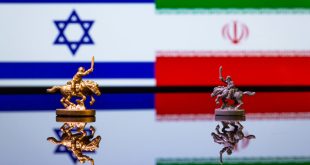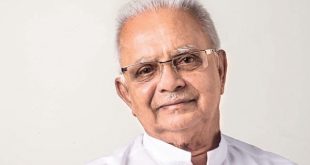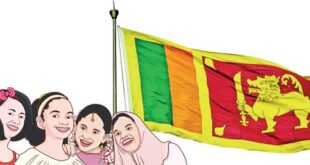KABUL – General Stanley McChrystal’s cautiously worded support for a negotiated settlement with the Taliban leadership is only the first public signal of a policy decision by the Barack Obama administration to support a political settlement between the Karzai regime and the Taliban, an official of the McChrystal’s International Security Assistance Force (ISAF) command has revealed in an interview with Inter Press Service (IPS).
Speaking to the Financial Times on Monday, McChrystal couched his position on negotiations in terms of abstract support for negotiated settlements of wars. “I believe that a political solution to all conflicts is the inevitable outcome,” the ISAF commander said, avoiding a direct answer to the question of whether the
Taliban could play a role in a future Afghan government.
When pressed on the issue, McChrystal would only say that “any Afghan can play a role if they focus on the future and not the past”.
The ISAF official, who spoke with IPS on condition that he would not be identified, was much more candid about the centrality of peace negotiations with the Taliban leadership in the Obama administration’s strategy in Afghanistan, and about the ISAF command’s understanding that the Taliban leadership was independent of al-Qaeda and already positioning itself for a political settlement.
The official said the objective of the troop surge and the ISAF strategy accompanying it is to support a negotiated political settlement. “The story of the next 18 months is the story of establishing the conditions under which reconciliation will take place,” said the official.
“Reconciliation” is the term used within the US military for an understanding between the Karzai regime and the insurgency’s leaders, whereas “reintegration” refers to a strategy for bringing mid-level Taliban commanders and their troops back into society.
The counter-insurgency strategy being mounted in Afghanistan by the ISAF “is aimed at providing time and space” for reconciliation, according to the official, as well as governance reforms and increasing the capacity of the national army and police force during that 18-month period.
The ISAF official said there has been a debate among US officials about “the terms on which the Taliban will become part of the political fabric”. The debate is not about whether the Taliban movement will be participating in the Afghan political system, however, but on whether or not the administration could accept the participation of Mullah Omar, the leader of the organization and former chief of state of the Taliban regime from 1996 to 2001, in the political future of Afghanistan.
Some US officials have argued that the Taliban leader should be barred from participation because of his role in protecting Osama bin Laden before the September 11, 2001, terror attacks and refusing to hand over the al-Qaeda leader in the weeks that followed.
The official suggested that the Obama administration and its NATO allies need to reach a consensus about Omar, and that recent events make the present moment “seem like a good time to deal with that”.
Despite their interest in that issue, the ISAF official said, the United States won’t determine the outcome of the negotiations. “Reconciliation is considered to be in the purview of the Afghan government and international mediators,” the official said.
Nevertheless, the official left no doubt that the US will take part in the negotiations. “I don’t think anybody is under the misconception we are not going to negotiate,” he said.
US participation appears necessary to get the Taliban to agree to end their resistance and reach a political solution. In published statements, Taliban leaders have insisted they will not participate in peace talks that don’t result in the withdrawal of foreign troops.
That demand raises the question of whether the Obama administration would be willing to discuss the complete withdrawal of US and other foreign troops from Afghanistan as part of a settlement.
The last time a demand for a timetable for US troop withdrawal was negotiated in an international agreement was in the Iraqi security pact of 2008. The Bush administration had insisted that the US would only agree to a “condition-based” withdrawal plan, but in the end it accepted a deadline for complete withdrawal.
The ISAF official said the decision on that issue would be made by Washington and its NATO allies, but also that the ISAF command would have “no problem” with a timetable in conjunction with a negotiated political settlement.
The official suggested that the argument used to justify the troop surge in Afghanistan – that the Taliban would let al-Qaeda operate in Afghanistan if it were allowed to consolidate power in large areas – has now been abandoned.
“There are certainly divisions between Taliban and al-Qaeda,” said the official. He cited statements by Taliban officials that “the state was hijacked by al-Qaeda, and we’re not going to let that happen again”.
The argument that the Taliban leadership would be unwilling to negotiate unless an increased US military pressures in the next 18 months persuaded them that they are losing also appears to have been abandoned by the administration and the ISAF command.
The official cited a growing trend in intelligence analysis concluding that the Taliban is positioning itself for a settlement.
Seeking a negotiated solution “is the smart thing for them to do’,’ the ISAF official said. “They are probably at the zenith of their power” and may be anticipating serious challenges to their hold on parts of their present Taliban territorial base in the south, he said. In addition, the Taliban see a “fairly strong international commitment” to political settlement of the war, he said.
Although he acknowledged that the Taliban leadership wanted a political settlement, the ISAF official offered a new rationale for continuation of the war, suggesting that it was “necessary to continue to put pressure on the insurgent leaders to keep negotiations going”.
The admission that negotiations with the Taliban leadership for a settlement would be at the expense of al-Qaeda influence in the country follows Taliban statements in recent months suggesting a new willingness to meet the central US demand that the Taliban separate itself from al-Qaeda.
In September, Mullah Omar declared the Taliban has no interest in a global jihadi campaign and in December a Taliban statement said the organization was ready to provide “legal guarantees” against “meddling” in foreign countries – an obvious reference to any al-Qaeda bases – as part of a settlement involving withdrawal of foreign forces.
Syed Saleem Shahzad of Asia Times Online, however, has reported of a meeting late last year between bin Laden and Mullah Omar in which the two pledged a closer relationship in the struggle to get foreign troops out of Afghanistan. (See Al-Qaeda’s shadow over Taliban talks, Asia Times Online, January 7, 2009.)
 Sri lanka Muslims Web Portal Diversity and Inclusiveness
Sri lanka Muslims Web Portal Diversity and Inclusiveness



